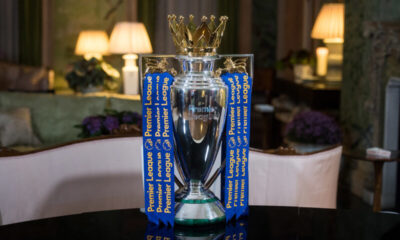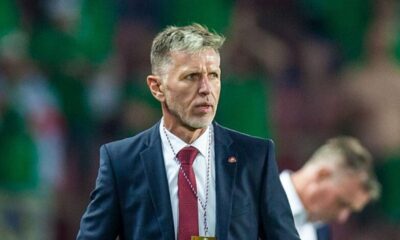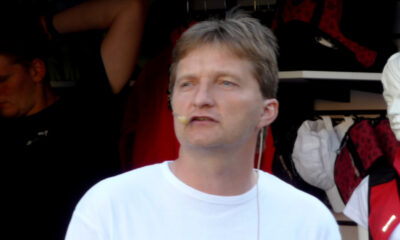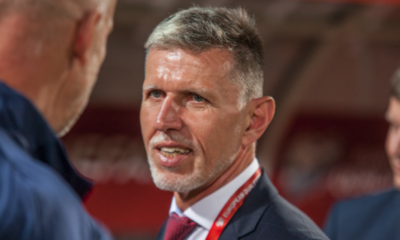Football
Commentator, he’s got the hard bread. Bosak won’t get any sleep during the Euro, almost missed the Czechs in England
Jaromír Bosák described the difficult life of a football commentator during the European Championship, scattered all over the continent, in his glossary for Seznam Zprávy. He revealed, for example, what complications accompanied him on his way to the Czechs’ match in England
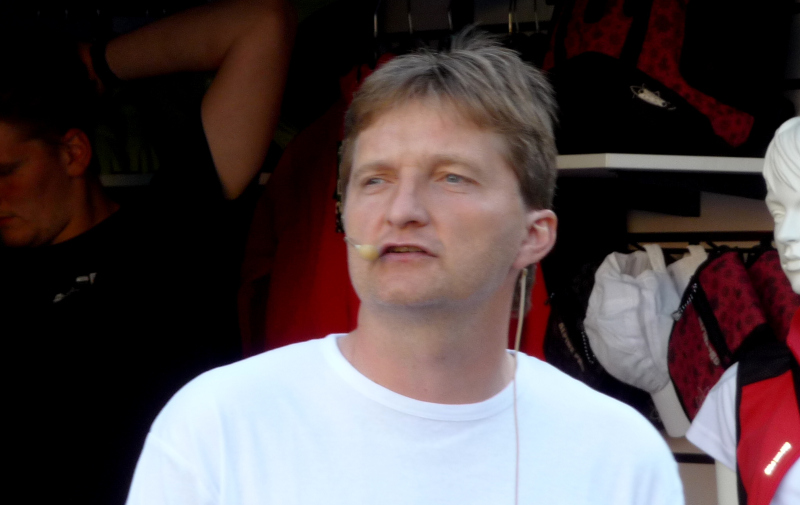
Jaromír Bosák described the hard life of a football commentator during the European Championship, scattered all over the continent, in his glossary for Seznam Zprávy. He revealed, for example, what complications accompanied him on the way to the Czech Republic’s match in England and how he forgot his preparation for Germany the very next evening.
Isn’t the job of a TV commentator easy? No way! During this year’s European Championships, a total of four gentlemen are taking turns behind the microphone, and the most renowned of them, Jaromír Bosák, gave people an insight into what their lives are like from mid-June to mid-July.
“In the evening, you commentate from the Kavčí hory Mountains, you arrive home half an hour after midnight. At one o’clock you throw yourself under the blanket, at three the alarm rings, at four you are picked up by a taxi and you head to the airport, because you are destined to travel by air to London for the Czech Republic-England match.”
The Cheb native has a six-hour journey ahead of him at that time. He had already secured tickets when the direct connection between Prague and London was not yet operational, so he has to change planes in Amsterdam, the Netherlands.
There, a serious complication arose. There was a mistake in the myriad of documents needed for Bosák to finally make it to his commentator’s station in Wembley, including a passenger locator form, a PCR test report in English, an invitation letter from UEFA, accreditation, a passport, a learning certificate and a vaccination certificate in English.
“Suddenly the men at the desk refuse to let you on the plane, and you’ve sprinted across the terminal because you have about ten minutes to change planes at one of Europe’s biggest airports because there was a storm in Prague and the flight was delayed.
And now, with a heart rate of 200 and your tongue hanging out, you discover that somewhere inside the passenger locator there is an inaccuracy,” the 56-year-old commentator described.
Instead of the flight number from the Dutch capital to London, the box mistakenly said flight from Prague to Amsterdam. So the entire four-page document had to be filled out again, all while the highlighted flight was starting its engines, the next one was fully booked and the next available one would be the one Bosak would get to during the second half.
But fortunately, this story ended well for all the hungry fans looking forward to watching the Czech national team’s final group game on TV, and especially for the Czech TV envoy himself – he made the boarding just in time.
You have to be at the stadium three hours before the game
But the rush continued upon arrival. According to the covid’s regulations, Bosák was only allowed to use a taxi in London to get to his hotel, which took him a long hour and a half. He stopped there only for a turn.
“You need to be at the stadium about three hours before the game. But you have to leave the hotel four and a half hours before kick-off. Colleagues have to sort out accreditation, you need to check out the commentator’s box, which of course travels with you, and have enough time to fine-tune problems if the connection with Prague goes wrong.
All the possible procedures, filming the entry and other duties take about an hour and a half and you can finally get to the match,” Bosák revealed the whole long pre-match process.
“Not much commentary considering what was happening on the pitch,” he added. But the uproar was caused by the voices heard on his microphone during the match, which immediately drew complaints from annoyed spectators.
“The audio line was being penetrated by CRo colleagues (through no fault of their own). They were sitting right below us and were loud, as radio is wont to be. Despite all the urgings, the UEFA authorities did not take into account that mixing together the stations of radio and TV crews, especially from one country at a time when the stadiums are not full and therefore the microphones pick up what they would not normally have a chance to send to the world, is utter nonsense.”
Preparation for Germany stayed at home
And after the game? An overnight stay in a hotel, a six-hour drive back and a quick hop home. Exhausted, tired. But a football commentator can’t rest, he can’t even catch up on dinner. He’s still on duty that evening for the Germany-Hungary match.
In the rush and fatigue, there was another complication. “Only at Kavki do you realise that you have left everything about Germany at home, because, unfocused as you were, you only picked up everything about the Hungarians. Gott sei Dank (thank God) that I know a little about the Germans after all,” says Bosák.
Just before the commentary, however, fatigue finally caught up with him and he fell into a short micro-sleep. The solution? “Forget about cocaine and similar spicy things,” he joked. “Of course, you don’t want to ruin your stomach with carbonated nonsense in colored cans, so you reach for the guarana so you don’t snore from the speakers on the screens.”
Holt, the football commentator, he’s got hard bread.
Source

